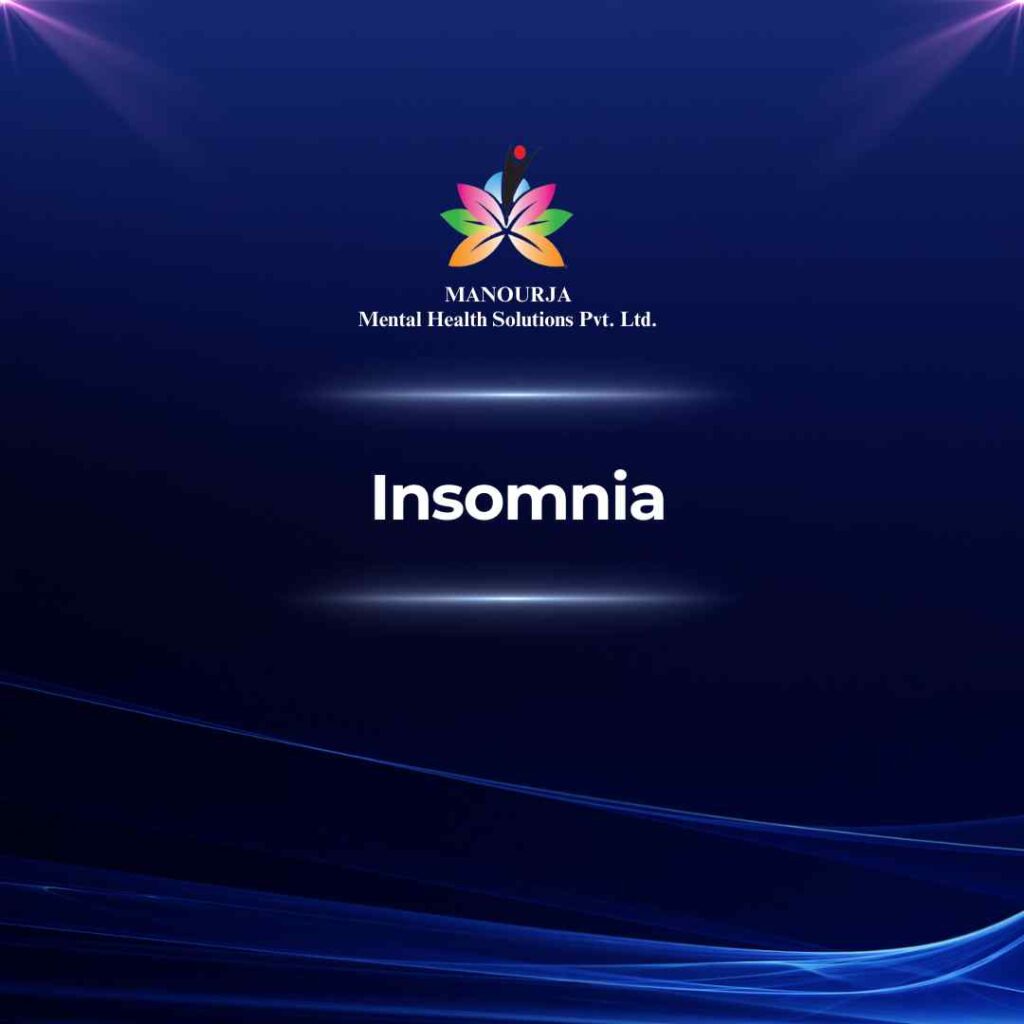Insomnia

Insomnia refers to a persistent difficulty falling asleep, staying asleep, or experiencing non-restorative sleep despite adequate opportunity for sleep. Here’s an explanation:
Meaning
Definition: Insomnia is characterized by difficulty initiating or maintaining sleep, waking up too early, or experiencing non-refreshing sleep. It is often associated with daytime impairment or distress.
Significance as a Sign and Symptom of Mental Illness
Signs and Symptoms:
- Difficulty Falling Asleep: Individuals may struggle to fall asleep initially, often lying awake for extended periods before sleep onset.
- Frequent Awakenings: Waking up frequently during the night and having difficulty returning to sleep.
- Early Morning Awakening: Waking up earlier than desired and not being able to go back to sleep.
- Non-Restorative Sleep: Despite spending adequate time in bed, feeling unrefreshed upon waking up.
- Daytime Impairment: Insomnia can lead to daytime symptoms such as fatigue, irritability, difficulty concentrating, and impaired performance at work or school.
Mental Illnesses Associated with Insomnia
- Anxiety Disorders: Conditions like generalized anxiety disorder, post-traumatic stress disorder (PTSD), and panic disorder often include insomnia as a symptom. Persistent worrying or traumatic experiences can interfere with sleep.
- Depressive Disorders: Insomnia is a common symptom of major depressive disorder. It may present as difficulty falling asleep, waking up early, or disrupted sleep patterns. Sleep disturbances can also worsen mood symptoms.
- Bipolar Disorder: Both manic and depressive episodes in bipolar disorder can disrupt sleep patterns. During manic episodes, individuals may experience reduced need for sleep, while during depressive episodes, insomnia is more common.
- Psychotic Disorders: Schizophrenia and other psychotic disorders may involve sleep disturbances, including insomnia, which can exacerbate symptoms of psychosis.
- Substance Use Disorders: Substance abuse, including alcohol and certain drugs, can disrupt sleep patterns and lead to insomnia.
- Trauma-Related Disorders: PTSD and other trauma-related disorders often include nightmares, flashbacks, and hypervigilance, which can contribute to insomnia.
- Chronic Pain Disorders: Conditions like fibromyalgia or chronic back pain can cause discomfort that interferes with sleep.
Diagnosis and Treatment
Diagnosing insomnia involves evaluating sleep patterns, duration, and associated daytime impairment through clinical assessment and possibly sleep studies. Treatment options may include:
- Cognitive Behavioral Therapy for Insomnia (CBT-I): A structured approach focusing on improving sleep habits, addressing negative thoughts about sleep, and promoting relaxation techniques.
- Medications: Prescription medications, such as sedatives or hypnotics, may be used short-term to manage insomnia symptoms.
- Addressing Underlying Causes: Treating underlying mental health conditions, managing stress, improving sleep hygiene, and addressing lifestyle factors like diet and exercise.
Conclusion
Insomnia is a complex symptom influenced by various factors, including psychological, physiological, and environmental factors. It can significantly impact quality of life and overall mental health. Identifying and addressing insomnia as a symptom of underlying mental illness is crucial in providing comprehensive treatment and support.
At MANOURJA, we believe in the transformative power of counseling. Our experienced therapists offer a safe and supportive space where you can explore your thoughts, emotions, and challenges. Through personalized counselling sessions, we’ll work together to develop coping strategies, build resilience, and achieve lasting positive change. Discover the path to a healthier, happier you with MANOURJA counselling services.
MANOURJA Rehabilitation Services
At MANOURJA, we’re dedicated to helping you in rebuild your life, after difficult times. Our rehabilitation services focus on understanding what you need to move forward, whether you’re recovering from addiction, trauma, or any psychological – social challenges. We create personalized plans, that are all about helping you, regain your strength and find hope again. With a caring team by your side, you’ll have the support to make real progress and take steps toward a brighter, healthier future.
